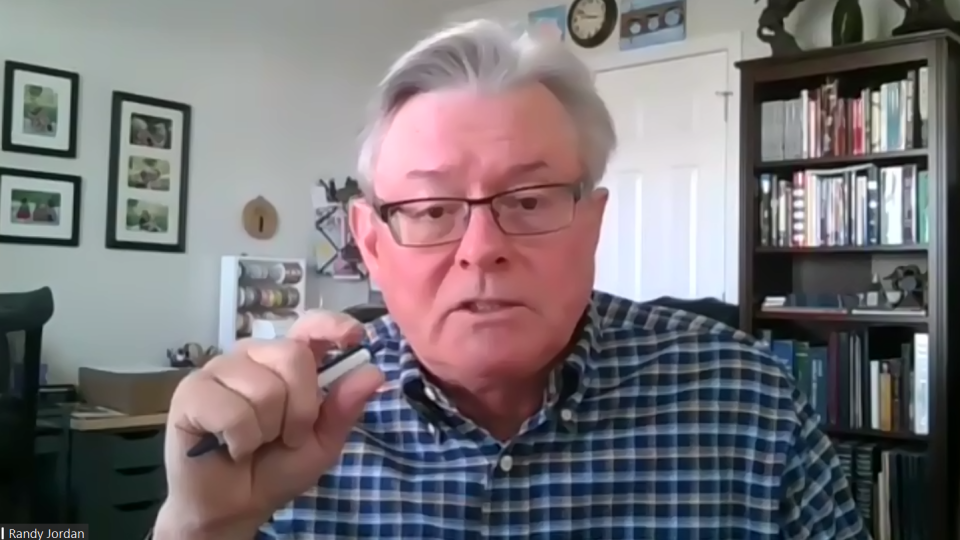'We would have tanked': Buncombe free clinic and others getting NC budget lifeline

Scott Rogers is "bleeding" volunteers and it's been that way for a while now.
He's director of Asheville Buncombe Community Christian Ministry Doctor's Medical Clinic, one of more than 70 clinics across North Carolina set to receive a portion of nearly $25 million from the newly inked budget.
ABCCM serves uninsured or inadequately insured adults between 18 and 64 who are below 200% of the federal poverty line.
"The reason these funds are so important is that our clinic runs entirely on volunteers," Rogers said. "But with the pandemic and the fact 90% of our volunteers are also retirees who have underlying medical conditions, our number of volunteers has dropped dramatically.
More: Buncombe County extends mask mandate through the new year due to rising COVID-19 cases
The clinic, located at 155 Livingston St., is only operating at about 25% capacity right now, Rogers said, struggling to meet a rising tide of medical needs.
Gov. Roy Cooper signed the budget bill on Nov. 18 so details about how soon the money will make it to ABCCM and clinics across North Carolina are blurry, but what's clear who will be allocating it: North Carolina Association of Free & Charitable Clinics.
NCAFCC has 72 clinics in its network and will be doling out the money in the coming months, about $15 million after an estimated $10 million were given directly to some larger free clinic operations. Another $15 million from the new budget will also be available in the form of community health grants, administered through the N. C. Department of Health and Human Services.
Across the board, according to organization officials, free clinic volunteer participation is down more than 60%.
More: Answer Man: Volunteering takes a big hit during COVID? How far did numbers drop?
Rogers said he can use the money to hire additional nursing staff and other medical professionals to "supplement what we lost in volunteer participation."
According to NCAFCC CEO Randy Jordan, the blow to volunteer participation at free clinics is only one of several issues that have cropped up during COVID-19.
"Our costs went up, our volunteers went down, our ability to raise money went down and our demand for services went up," Jordan said.
The organization estimates it’s seen a 10% leap in demand since the pandemic start, in fact. "It's a quadruple whammy. We would have tanked."

"Tanked," were it not for state funding, Jordan said.
Before COVID-19, NCAFCC was receiving about $4 million a year from the state, Jordan said. Compare that with a statewide budget for all 72 clinics of about $32 million to $35 million a year.
But costs are rising with needs.
The first big lump of funding came to NCAFCC courtesy of the Coronavirus Aid, Relief and Economic Security Act, also known as the CARES Act, totaling about $12 million.
That was the largest sum the organization had ever received, until 2021 when American Rescue Plan Act funding came open to states.
Related: Asheville area gets massive $4.7M infusion of COVID federal homeless aid
In 2020, NCAFCC clinics served an estimated 76,900 patients during 148,700 visits, according to statistics from its website.
Jordan and Rogers both noted that about 70% of patients are working, contradicting what Jordan called a "mythology" that people who can’t afford adequate healthcare are "not hard workers."
Clinics are seeing a trend in these patients. Jordan emphasized the increased demand for dental and mental health services during COVID-19.
Given the growing complexities of need, Jordan said NCAFCC also is trying to find ways to help employers provide better healthcare to employees that frequent free clinics.
"We're thrilled the NCAFCC is so effective," Rogers said. "But we're also equally thrilled to have local support. The churches in this community contribute about $500,000 to the clinic each year."
He also praised other partners like the WNC Bridge Foundation, the Leon Levine Foundation, the Sisters of Mercy Foundation and Mercy Urgent Care Centers and Dogwood Health Trust for helping the Asheville clinic as it limps through ongoing volunteer losses.
Related: 'I wouldn't bring my dog here': Mission nurses protest poor conditions due to staff shortage
"What we know is that in Buncombe County, there's a gap between what other providers do take and the total number which is around 7,000 and 9,000 adults a year," Rogers said, adding ABCCM served about 6,400 adults in 2020.
Despite the huge operational boost state funding is set to give local clinics, Jordan encouraged those interested in giving to visit the NCAFCC website to see how they can help.
The website also includes a list of free and charitable clinics throughout North Carolina and ways to get involved with volunteer service.
According to 2020 U.S. Census Bureau statistics, 8.6% of Americans or 28 million didn't have health insurance at any point during that year.
More children under the age of 19 in poverty were uninsured in 2020 than in 2018, according to that data, an increase from 1.6% to 9.3% percent.
Andrew Jones is Buncombe County government and health care reporter for the Asheville Citizen Times, part of the USA TODAY Network. Follow or reach him at @arjonesreports on Facebook and Twitter. Email him at arjones@citizentimes.com.
This article originally appeared on Asheville Citizen Times: North Carolina budget nets $25 million for 'free' medical clinics

